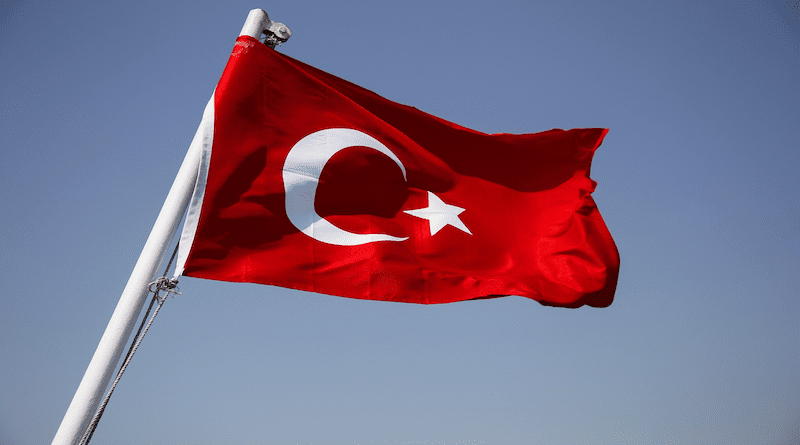Turkey: Dangerous, Dystopian New Legal Amendments, Warns HRW
Turkey’s parliament passed a swathe of new amendments known as the “censorship law” on October 13, 2022, introducing new abusive criminal speech offences that further deepen online censorship and restrict access to information, ARTICLE 19 and Human Rights Watch said.
The timing of the legislation, months before 2023 presidential and parliamentary elections, also raises concerns that the government intends to muzzle online reporting and commentary critical of the Erdogan government in the run up to the elections.
“Taken together, the new legislation represents a draconian new chapter ahead of elections in 2023 by increasing the weapons in the government’s arsenal to enforce censorship and tighten control over social media and independent online news sites,” said Sarah Clarke, Head of Europe and Central Asia at ARTICLE 19, “With severe penalties against tech companies for failure to comply with user data and content take-down requests, the law will force tech companies to be complicit with an almost total censorship regime.”
The new legislation consists of 40 articles amending several laws, including the Internet Law, the Press Law, and the Turkish Penal Code. It makes “disseminating false information” a criminal offense with prison sentences of between one to three years. It establishes much tighter government control over online news websites. It equips the government-controlled Information and Communication Technologies Authority (Bilgi Teknolojileri ve İletişim Kurumu, BTK) charged with regulating the internet, with far-reaching powers to compel social media companies to comply with requests to take down online content and hand over user data or to be subject to reduction of their bandwidth – known as “internet throttling” – if they don’t comply.
ARTICLE 19, Human Rights Watch, as well as other organizations, have extensively documented the widespread abuse of Turkish Penal Code and Anti-terrorism Law provisions to prosecute and convict journalists and any perceived government critic for critical reporting, statements, or commentary even though they in no way advocate violence. Under the new legislation, anyone who criticizes the government on online platforms can be prosecuted under disinformation charges.
Social media is one of the last arenas where people have access to independent news and can express themselves with relative freedom after the broad crackdown on media in Turkey. This is despite Turkey’s already restrictive internet law, which includes arbitrarily blocking and removing websites and other online content. This new law seeks to close that space by forcing tech companies to become the apparatus of state censorship, ARTICLE 19 and Human Rights Watch said.
In 2020, amendments to the Internet Law combined severe sanctions for not appointing a local representative – throttling of up to 90 percent of their bandwidth – with relatively mild sanctions for noncompliance with content removal requests. Tech companies opted to appoint a local representative while pledging to still protect user rights by not responding to all content removal or data requests. ARTICLE 19, Human Rights Watch, and the Freedom of Expression Association (IFOD) warned the tech companies at the time not to set up representative offices in Turkey, as given the hostile environment, this would inevitably lead to their implication in human rights abuses.
The new law builds on the 2020 law in two key respects. It formalizes the tech companies’ status in Turkey and greatly increases the extent to which they can be held criminally, administratively, and financially liable by requiring those with over 10 million daily users to set up companies, not simply representative offices or real person representatives. Second, it introduces severe sanctions against the companies for failure to comply with any content blocking or removal request or demand to hand over user data, with bandwidth reduction of up to 90 percent for noncompliance. As a result, the companies will either inevitably become implicated in human rights violations or their platforms could become inaccessible in Turkey, the groups said.
“The new law tightens the Turkish government’s control over social media by subjecting tech companies like Twitter and Facebook to enormous pressure to comply with government censorship and criminal probes into users,” said Emma Sinclair-Webb, Europe and Central Asia associate director at Human Rights Watch. “With severe penalties against tech companies for noncompliance, the law effectively blackmails tech companies into abusing human rights to avoid becoming inaccessible platforms.”
The Turkish government should repeal the law and end the crackdown on civil society, ARTICLE 19 and Human Rights Watch said. Turkish authorities should ensure the right to freedom of expression and free flow of information especially in the run up to and during elections.
The social media platforms should urgently clarify their position publicly so that users fully understand and can foresee the risk of using their platforms. They should not succumb to pressure and should comply with their obligations under the UN Guiding Principles on Business and Human Rights to respect human rights, including freedom of expression and privacy.
They should resist any complicity with government censorship or reject arbitrary demands for user data that would expose their users to the risk of arrest for sharing online content that falls within the boundaries of protected speech. In a context of a pervasive disregard for freedom of expression and a pattern of prosecution and conviction for so-called “speech crimes,” compliance will make it practically impossible for the tech companies not to become implicated in human rights violations, ARTICLE 19 and Human Rights Watch said.

